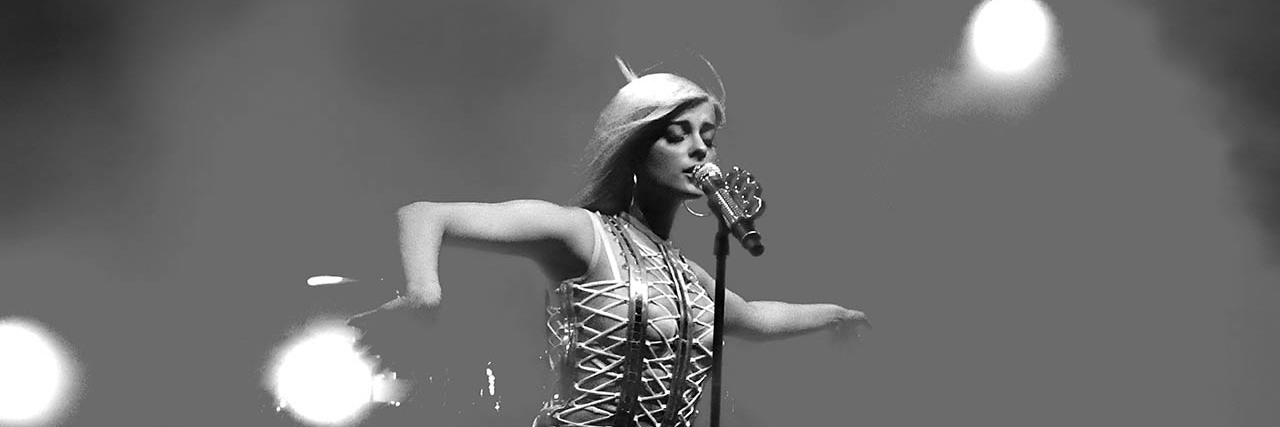Bebe Rexha Delayed Getting a Mental Health Diagnosis Because She Didn't Want to Be Called 'Crazy'
In April 2019, Bebe Rexha revealed her bipolar disorder diagnosis for the first time. In a new interview, the singer/songwriter shared how, though she’d experienced symptoms for years, she finally asked her therapist about her mental illness diagnosis days before revealing the information to the world on social media.
• What is Bipolar disorder?
In an interview with SELF, Rexha shared she resisted knowing her mental health diagnosis for years, despite her therapist and parents knowing something was going on. She said she was afraid what might happen if she admitted struggling with her mental health.
“It’s the war you have inside your head: Will it affect my career? Will people judge me? Will they want to work with me?,” Rexha said. “If people have been calling me crazy, are they going to be like, ‘Well, that bitch is fucking crazy’?”
Eventually, Rexha said she asked her therapist point-blank if she had bipolar disorder, which her therapist confirmed. Bipolar 1 is a mood disorder that causes people to experience large swings or shifts in their moods, from deep depression to high, manic states that can lead to impulsive decisions, grandiosity, decreased need for sleep, racing thoughts, pressured speech and the desire to do many things at once.
I felt nervous putting out this cover. I never wanted to be judged or labeled as “crazy.” There is still a stigma associated with mental illness and mental healthcare. Hopefully I can help to make a small change.
Thank you @SELFmagazine https://t.co/wokPp4Io89 pic.twitter.com/1v5UhWyBd3
— Bebe Rexha (@BebeRexha) February 25, 2020
Rexha said the news was hard to hear at first, but she went public with the knowledge shortly after she learned of her diagnosis to combat the shame she felt about the diagnosis in hopes it might help others as well.
“It did kind of fuck me up for a little bit. I didn’t want to think there was something wrong with me,” Rexha said, adding:
That was my worst fear all my life: going crazy. I felt like me opening up to my fans was me finally saying, ‘I’m not going to be imprisoned by this.’ And maybe it’ll make somebody not feel imprisoned, in that moment, if they feel like they’re going through a rough time. That’s why I decided to really open up and to free myself from that.
Like many people who are diagnosed with a mental health condition, Rexha said she experienced signs of bipolar disorder from a young age. This included experiencing high levels of anxiety as a child and premenstrual dysphoric disorder (PMDD), a more severe form of premenstrual syndrome (PMS) that can cause depression.
“My mom would call it code red,” Rexha said. “A day before [my period started], I would feel like my world was ending, that my life went to shit … I would get into these funks and be really depressed and not want to leave my house.”
Rexha’s mental health journey made her feel like she was on a “carousel.” She said at times she would “feel just weird feelings, weird emotions, weird thoughts all the time” that led to impulsive urges. At other times, trying to manage the depression would feel like “trying to pull a train.” And just like she delayed getting a diagnosis, Rexha shared she was hesitant about starting medications, but ultimately found them helpful.
“I waited a very long time until I took meds. I was really scared that it was going to change who I was and flatten me out,” Rexha said, adding:
I’m still the same person in the studio. [Medication has] maybe helped me be a little bit more insightful and learn things about the world and also allowed me to be a little bit more centered so that I can actually write about my feelings. … It doesn’t take away the sadness or anxiety totally, but I feel so much better. It’s helped me live a more balanced life, less ups and downs. When my medication started kicking in, I couldn’t believe how I felt. I couldn’t believe that’s how good people could feel.
Besides her art, therapy, medication, self-care practices, and her support system have helped @beberexha manage her condition and grow. “I definitely think I’ve changed a lot. [I’ve] become more patient and kind with people, and I’m able to check myself more.” pic.twitter.com/v3VTKEszcI
— SELF (@SELFmagazine) February 25, 2020
Image via Creative Commons/Drew de F Fawkes

